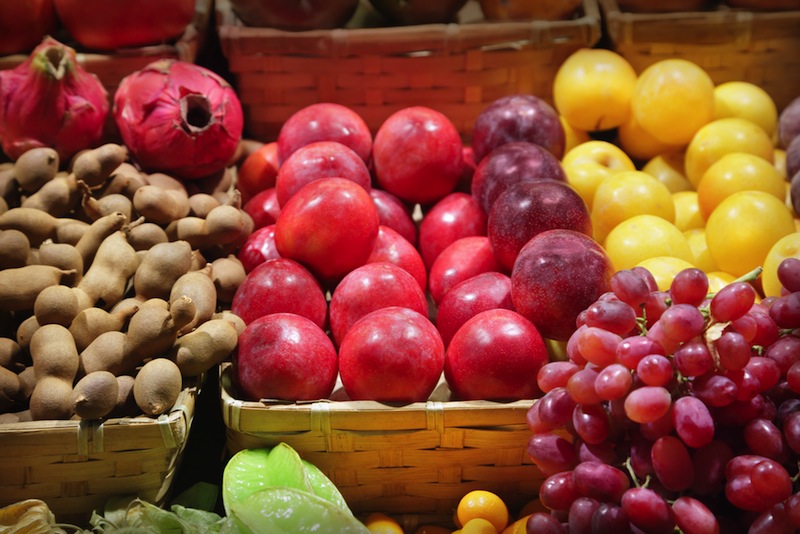
5 Ways to Save Money on Fresh Produce

Get the world’s most fascinating discoveries delivered straight to your inbox.
You are now subscribed
Your newsletter sign-up was successful
Want to add more newsletters?

Delivered Daily
Daily Newsletter
Sign up for the latest discoveries, groundbreaking research and fascinating breakthroughs that impact you and the wider world direct to your inbox.

Once a week
Life's Little Mysteries
Feed your curiosity with an exclusive mystery every week, solved with science and delivered direct to your inbox before it's seen anywhere else.

Once a week
How It Works
Sign up to our free science & technology newsletter for your weekly fix of fascinating articles, quick quizzes, amazing images, and more

Delivered daily
Space.com Newsletter
Breaking space news, the latest updates on rocket launches, skywatching events and more!

Once a month
Watch This Space
Sign up to our monthly entertainment newsletter to keep up with all our coverage of the latest sci-fi and space movies, tv shows, games and books.

Once a week
Night Sky This Week
Discover this week's must-see night sky events, moon phases, and stunning astrophotos. Sign up for our skywatching newsletter and explore the universe with us!
Join the club
Get full access to premium articles, exclusive features and a growing list of member rewards.
Extreme couponing: It's a thing now. And it seems to have sparked a resurgence in coupon clipping across the nation. Even I have been lured by the idea of getting my groceries for a fraction of their retail value. But after a few weeks of collecting and clipping, I realized that not only is this hard work, but it is also almost impossible to find coupons for fresh produce — and I'm not the only one.
In a 2014 Preventing Chronic Disease study, researchers scoured over 1,000 online store coupons from six national grocery chains, and found that fewer than 1 percent of the coupons found were for fruits or vegetables. A whopping 25 percent were for processed snack foods, candies and desserts, and about 12 percent were for beverages, which mostly consisted of sodas, juices and sports or energy drinks.
So, if you're looking to consume a healthy diet, rich in fresh fruits and veggies, don't expect to save big from couponing. But that doesn't mean you can't save. [6 Easy Ways to Eat More Fruits and Vegetables]
Here are my top tips for saving money on fresh produce.
1. Shop at farmers' markets. At a farmer's market, you're more likely to find produce that is picked fresh from the vine, possibly even that morning. This means that it is likely to last longer, which will give you more time to consume it before it has to be tossed. Also, by cutting out the “middle man” (grocery store), there's a chance you can save some dough.
2. Weigh pre-bagged produce. Pre-bagged produce is often packed by volume, not by weight. Weigh your bags and choose the heaviest to get the most for your money.
3. Know the "Dirty Dozen." The Environmental Working Group maintains a list of the produce items that it considers to be the most heavily sprayed with pesticides and other chemicals. If you're trying to limit the quantity of pricey organic items on your grocery list, refer to the EWG's "Dirty Dozen" list to find which items of conventionally-grown (non-organic) produce are the "dirtiest." If you're going to buy anything organic, it should probably be these.
Get the world’s most fascinating discoveries delivered straight to your inbox.
4. Buy in-season produce. In theory, produce that is in-season is less likely to have traveled a great distance, and it's more likely to be cheaper per pound than out-of-season produce.
5. Shake it off. Produce in the refrigerated section is often sprayed with an occasional mist of water. This may seem like a minor thing, but that water can accumulate and weigh your produce down. Shake it off as much as possible and save.
Healthy Bites appears weekly on LiveScience. Deborah Herlax Enos is a certified nutritionist and a health coach and weight loss expert in the Seattle area with more than 25 years of experience. Read more tips on her blog, Health in a Hurry!
 Live Science Plus
Live Science Plus











